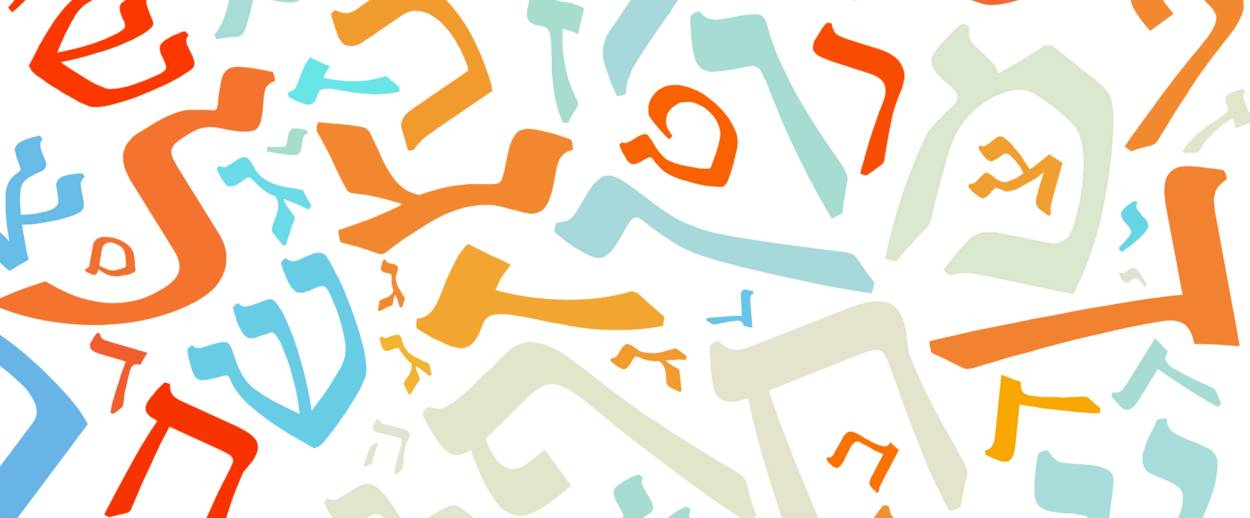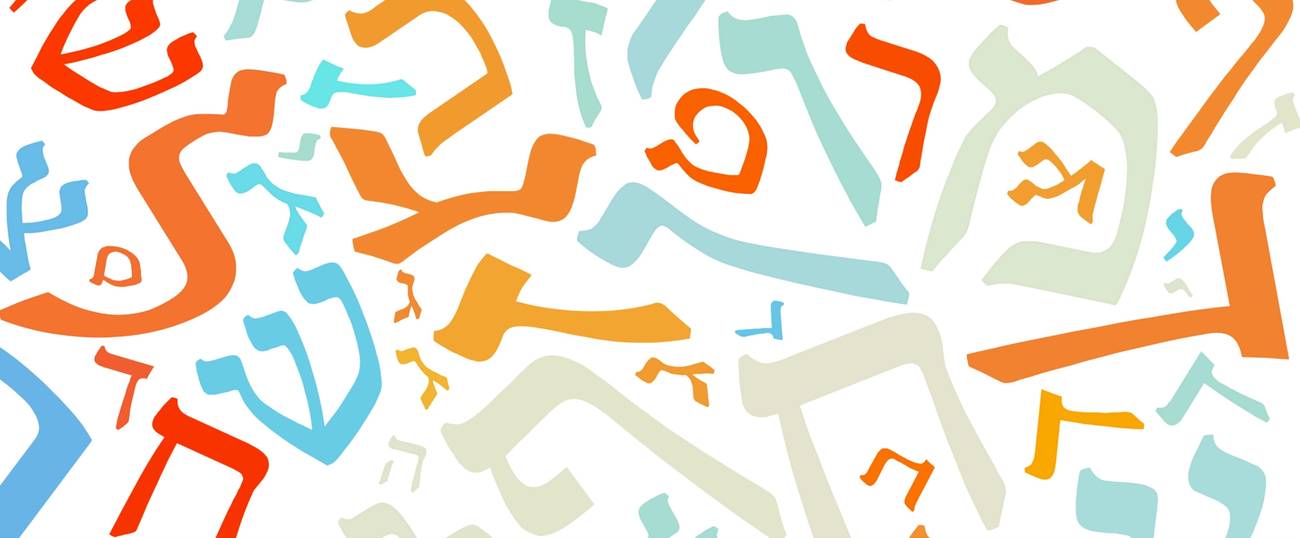Embrace the Ivrit
The Academy of the Hebrew Language has released a new set of words intended to help Israelis lean less on English. Will it catch on?




The Academy of the Hebrew Language is a curious institution. Founded in 1953, in Israel’s socialist days, the AHL is Israel’s official state regulator of the Hebrew language: not only does it authorize the entry of new words into the dictionary, it also coins them. These new entries often occur at the request of a public frustrated by its reliance on using forms of bastardized English where no Hebrew alternative exists. But help is here.
On New Year’s Eve, the AHL published a new collection of words intended to help Israelis discuss their society without having to resort to loaning English words. Now, consider how well-spoken Israelis are thus expected to argue about the news, or other societal issues:
As rising prices in Tel Aviv squeeze residents out of previously affordable neighborhoods, Israelis must not lament jentrifikatsia (gentrification), but rather ilut [עִילוּת] (from ilit, which itself, amusingly, is a Hebraized adaptation of “élite”.)
If local acts of terrorism were to escalate again, Israelis are instructed not to give in to panika. Tavhela [תַּבְהֵלָה], however—formed from the root b-h-l, meaning “fear”) with the pattern of tadhema (shock)—would be understandable.
Members of Knesset are expected to speak Hebrew correctly in their quest for histarerut [הִשְׂתָּרְרוּת], which translates roughly as “rise to power” and is borrowed from a Biblical passage in Numbers. They must not attack rivals for populism, but rather hamona’ut [הֲמוֹנָאוּת] (from hamon, meaning “many’”); likewise, they should refrain from accusations of sexism. In this case, minanut [מִינָנוּת] (from min, or “sex”) is the correct term (not to be confused with mina’ut [מִינָאוּת]: speciesism.) And as diplomats stress Israel’s claims to its ancestral land, they now have a word for “indigenous”—kadmonai [קַדְמוֹנַאי] (from kadmon, meaning “ancient”)—as distinct from yelidi, meaning “native.”
These new words will enter the dictionary alongside other creative coinages in recent years, and they may very well catch on. “Junk food” is now the gluttonously onomatopoetic z’lolet [זְלֹלֶת], a three-pronged portmanteau formed by zol (cheap), z’lila (overeating) and p’solet (junk). A cupcake is now an ugonit [עוּגוֹנִית], the diminutive of uga (cake). A gazebo is a sokhekha [סוֹכֵכָה], which readers may recognize from the word sukkah.
But other words attempting to replace terms in common parlance may struggle. Israelis will raise an eyebrow if invited to a mitzleh [מִצְלֶה] (from the root for “grill”), since barbecues are already known as al ha-esh (“on the fire”). The word nechdan [נֶכְדָּן] (from neched, or grandson) was originally coined to mean “nephew” but was recycled as “great-nephew” when the former meaning did not catch on. Israelis enjoying yehidiyut [יְחִידִיּוּת] (singlehood) are unlikely to ask each other out on a p’gisha romantit (literally, “romantic meeting”), as the Academy prefers, since date sounds more natural to the amorous Israeli ear.
In its exploration of new words, the Academy frequently opens its decision-making to public consultation. Visitors to its website are invited to vote on a new Hebrew word for, say, “bunker” (presently, boonker), using the root b-ts-r (meaning “to fortify”). Other options include betser (after a Biblical city of refuge), bitsaron (from the Book of Zachariah), and mivtsor (using the pattern of mistor, a hiding place). But the results of online polls of linguistic fans cannot guarantee a word’s entry into common currency: When reporters from Israel’s Channel 2 visited a Tel Aviv piercing salon to test nizum, nikuv, and nikbuv as alternatives for peersing, they were met with bewildered laughter.
The Academy does not believe that every foreign word should be replaced with a Hebrew alternative. Indeed, the Mishna is full of loans from across the ancient world. Amusingly, in over 60 years of existence, the Academiya has yet to coin a Hebrew term for its own name. The institution’s enactment in law was delayed for four years because Ben-Gurion objected to this irony. What chutzpah!
Previous: Five Yiddish Tongue Twisters
Eylon Aslan-Levy is an Israeli news anchor and political commentator. He is a graduate of Oxford, Cambridge and the IDF.